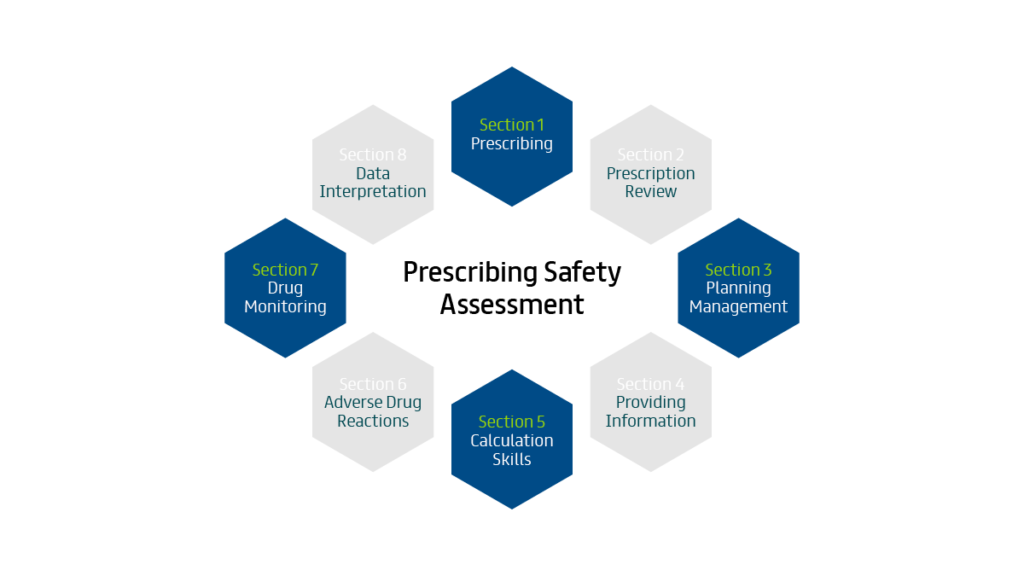How to Pass the Prescribing Safety Assessment Without Running Out of Time
Time pressure is one of students’ biggest challenges when sitting the Prescribing Safety Assessment (PSA). Even the most confident prescribers can feel overwhelmed by the ticking clock. If you’ve found yourself running out of time on practice papers or are worried about finishing, you’re not alone.
The good news? With the right strategies, you can complete the PSA within the time limit, without compromising accuracy. Here’s how;
Understand the Structure First
I know we’ve said it so many times, but before diving into time-saving techniques, make sure you know the format inside out! The PSA includes eight question sections, each testing a different aspect of safe and effective prescribing. You’ll have 120 minutes to complete 60 questions (equivalent to 200 marks), so time is tight, but manageable with practice.
Know your timings:
2 minutes per question is a useful average, but some sections (e.g. prescription writing) will naturally take longer.
Others (like data interpretation or calculations) may be quicker — use this to your advantage.
Top Tips to Save Time in the PSA
1. Don’t Get Stuck — Flag and Move On
If a question is taking too long, don’t panic. Use the flagging function to mark it and come back later if you have time. It’s better to secure marks on questions you can answer confidently than to lose time on tricky ones.
🎯 Pro tip: Set a soft time limit for yourself — for example, no more than 3 minutes on any single question before moving on.
2. Use the BNF Efficiently
The BNF is your best friend in the PSA, but it can also be a time sink. Practice navigating it quickly and purposefully, making sure you’re familiar with the different sections. You should know:
- Where to find drug interactions
- How to check doses (especially for renally-impaired or paediatric patients)
- Where to find prescribing guidelines for common conditions
🎯 Pro tip: Get comfortable using the online versions of the Medicines Complete BNF, BNFc and the NICE BNF and BNFc (in the UK) as these are what will be available in the exam.
3. Prioritise High-Yield Sections
Not all questions are equal in time or complexity. Focus on securing marks in the easier, quicker sections first, such as:
- Adverse Drug Reactions
- Drug Monitoring
- Providing information
- Data Interpretation
- Calculations
- Planning Management
Note: While prescription writing and prescription review may take longer, they also incur the most marks, so managing your time with these questions is paramount in making sure you don’t run out of time.
4. Practice with Realistic Timed Conditions
One of the best ways to build speed is practising full-length papers under exam conditions. This builds your time awareness, stamina, and ability to prioritise.
You’ll find a bank of practice questions on the official PSA website; make sure you utilise them!
🎯 Pro tip: After each timed practice, review not just what you got wrong, but where you lost time.
5. Use a Time Management Plan on the Day
Go into the exam with a clear strategy:
- Aim to complete each section in a set amount of time. Take a look at our previous blog – Mastering The Time Pressures Of The PSA, which includes a breakdown of timing for each section of the exam.
- Leave at least 10–15 minutes at the end to review flagged questions.
- Write your timings down on your scrap paper or make mental notes to help keep track.
The Take-Home Message
Running out of time in the PSA is a common worry, but with the right preparation and exam-day tactics, you can beat the clock.
Start by understanding the format, sharpen your BNF skills, and practise with purpose. Time management is a skill, just like prescribing, and you can master both.
Explore more tips, blogs and exam resources on the BPS Assessment Learner’s Portal to build your speed and confidence.
You’ve got this — one question (and one minute) at a time.








